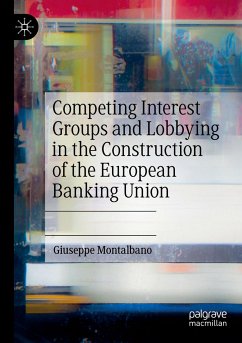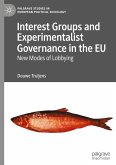This book investigates the role of banking interest groups and lobbying in the making of the European Banking Union. Facing the politicization of financial regulation in the wake of the crisis, core players of the European banking industry managed to adapt and re-orient their lobbying resources and strategies to influence the reform process. This work advances an original Critical IPE approach, which combines structural power, the collective agency of key socio-economic groups and the issue salience as critical determinants to explain corporate influence in policy-making. The explanatory framework is applied to a comprehensive analysis, tracing the Banking Union's development within the broader context of the EU post-crisis banking regulation. An in-depth scrutiny of the interest groups' preferences, coalitions and attainments is thus provided on the pillars of the Banking Union, covering banking supervision, resolution, deposit insurance, as well as the reform of the banks' prudential requirements and the failed project of an EU banking structural reform.
Bitte wählen Sie Ihr Anliegen aus.
Rechnungen
Retourenschein anfordern
Bestellstatus
Storno








